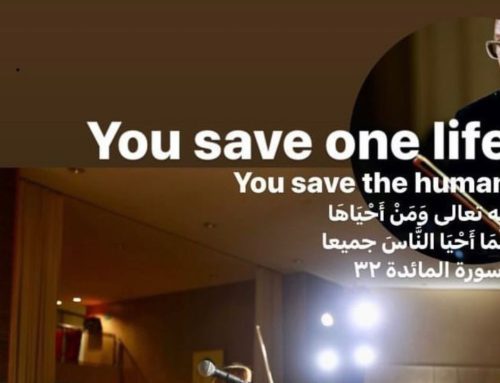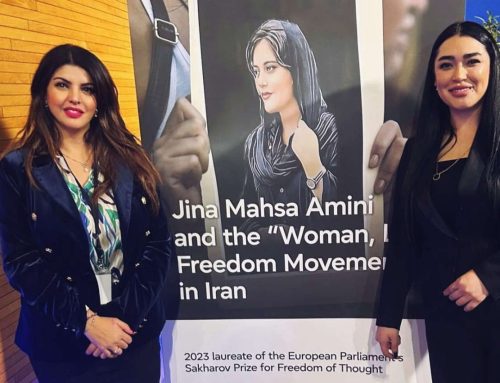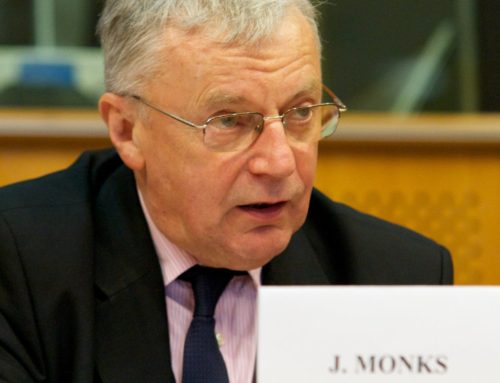By Manel Msalmi, Brussels
On Wednesday March 31st , a webinar was organised by the European Association for The Defense of Minorities and the Coordination of Party Youth Leaders and Politicians (CPYP-Egypt) in which participated Belgian Mp David Westman, a member of the Brussels Parliament and head of the Liberal Party in Brussels,Ms. Manel Msalmi an advisor to the European Parliament for the Middle East and North Africa affairs; Mervat Khalil, head of the Egyptian Union in the United Kingdom; and Nancy Naeem, a member of the Egyptian Parliament and Egyptian Senator Mahmoud Elkot .The webinar was moderated by Youssef Abdelkader, a belgian -Egyptian human rights activist.
Concluding the meeting, the participants agreed on the continuing talks to exchange expertise and ideas to empower women in the Middle East and in Europe.
Ten years ago, protests and uprisings that came to be known as the ‘Arab Spring’ started in Tunisia and then spread in much of the Middle East and North Africa (MENA) region. The Arab Spring was a call for social justice ,democracy, freedom and better economic and social conditions.Social media such as Facebook and Twitter played a great role in rising awareness and Women participated actively in the 2010-2011 Arab Spring through protesting, organising sit ins and blogging via social media and calling for women’s rights,equality and dignity. One of these famous female writers that participated in the demonstration and described her feeling as a free and independent woman are Mona Prince with her famous book « Revolution is my name « and Ahdaf Soueif with her intake « Cairo ,my city ;our Revolution « .it was a turning point in the history of female Egyptian writers and activists .
feminist scholars and academics have argued that women played an important role shapingthe Arab Spring and the new Egyptian state , and that gender is an important actor to be taken into consideration in order to understand political and social challenges in the coming years .
Unfortunately, when Muslim Brotherhood’s Freedom and Justice Islamist party won the 2012 presidential election with candidate Mohamed Morsi, women’s rights in Egypt were limited . The Muslim brotherhood cannot see a woman outside the biological stereotypes as a mother, child-bearer, and housewife.
Although the Muslim Brotherhood allows women to run for parliamentary elections, they put them at the bottom of the ticket or support them with weak campaigns. The women chosen are merely the wives of the leaders, regardless of their skills or qualifications. Thus, their chances to win are limited. This makes the group appear to be respecting women rights; in reality it is doing the opposite.They didn’t include Christian minorities especially « women Coptic Christians « to run for the parliament and there were only 3 Muslim female candidates in the Parliamentary elections out of 133.
We should remember that Egyptian feminism started 100 years ago with prominent figure Huda al-Sha’arawi the wtiter of Harem Years: The Memoirs of an Egyptian feminist.
Huda al-Sha’arawi’s was and still remains an icon of Egyptian feminism.
Doria Shafiq was also a feminist and an activist during the country’s independence but one of the leading figures of Egyptian and Arab feminism remains Nawal ElSaadawi, a feminist and a writer who shaped feminism and gender equality in Egypt, the Arab world and even in the west .She fought against patriarchy and women’s subordination and for equality as well as for female leading position in political and economic spheres.She wrote 50 books to address taboo subjects like female genital mutilation, prostitution and polygamy. She believed in Unity and female sisterhood to achieve equality and justice « Unity is power; without unity women cannot fight for their rights anywhere »
Examples of female leadership programs in Egypt
Today 10 years after the revolution and the Arab spring ,we find positive examples of female leadership in Egypt but there still is a lot of work to do in terms of gender equality and women’s empowerment. Minister of Planning and Economic Development Hala El Said stated Sunday that t the percentage of women’s representation on bank boards reached 12% in 2019 compared to about 10% in 2018.
« the percentage of women who owned bank accounts reached 27% according to the latest government studies after it was only 14% in 2014.
“Egyptian women also received 51% of the total loans directed to micro-businesses, and the percentage of women who defaulted on loan payments did not exceed 1%,” El-Said noted.
There is a national strategy for the empowerment of women 2030 which aims to address the factors affecting the economic empowerment of women.
Titelbild: privat
3245






Leave A Comment